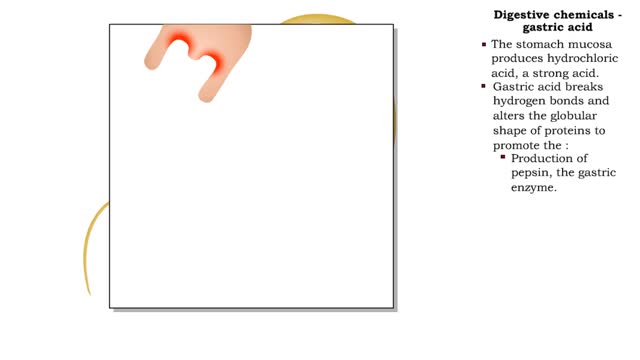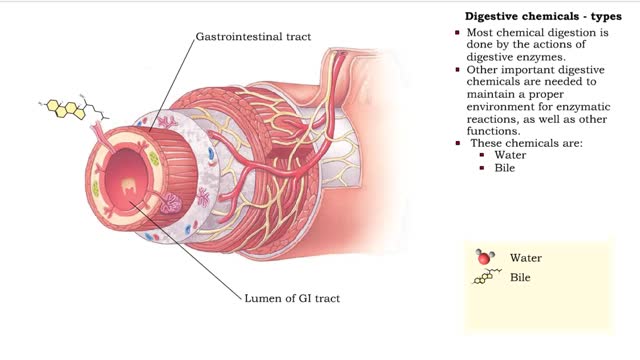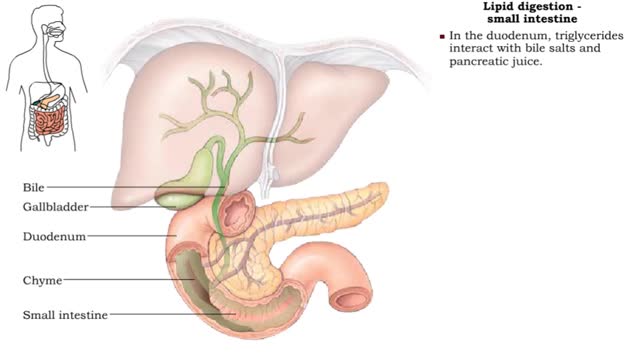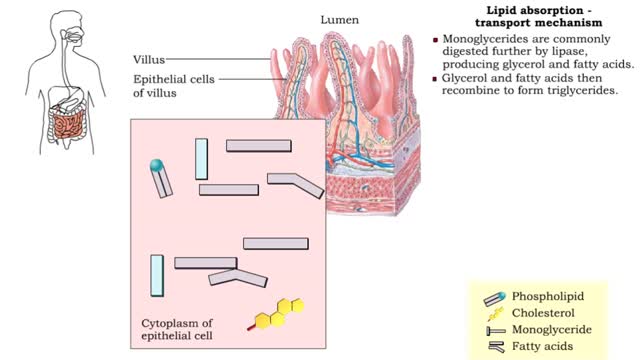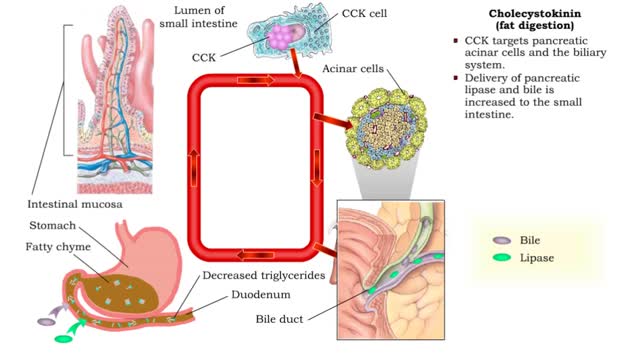Search Results
Results for: 'Bile'
Digestive chemicals - water, gastric acid, bile & bicarbonate
By: HWC, Views: 11073
• Water is the most abundant molecule in ingested fluids. • Water plays a primary role in hydrolytic digestive reactions. • Helps liquefy and transport digestive foodstuffs down the tract. • Transports secretions from accessory digestive organs to gastrointestinal tract. • Aids ...
Digestive chemicals - types & enzymes
By: HWC, Views: 11378
• Chemical digestion breaks down food as it moves through the digestive tract. • Using enzymes and other digestive chemicals, the process reduces food particles into nutrient molecules that can be absorbed. • Most chemical digestion is done by the actions of digestive enzymes. • O...
Lipid digestion - mouth, stomach and small intestine
By: HWC, Views: 11442
• Lipid digestion takes place primarily in the small intestine; some occurs in the mouth and stomach. • Lipases are enzymes that break down triglycerides and phospholipids. • Lingual and gastric lipases hydrolyze a small amount of triglycerides. • End products are fatty acids and...
Lipid absorption - end products & transport mechanism
By: HWC, Views: 10904
• The end products, fatty acids and monoglycerides, depend on bile salts for absorption. • Bile salts form micelles (tiny spheres), which ferry fatty acids and monoglycerides to epithelial cells. • Free fatty acids, monoglycerides, and some phospholipids and cholesterol molecules, dif...
Secretin (inhibiting gastric acid secretion), Cholecystokinin (fat digestion) & Cholecystokinin
By: HWC, Views: 11184
• As chyme approaches the small intestine, secretin also targets acid-producing parietal cells in the gastric mucosa. • Increased secretin inhibits gastric add secretion. • With less gastric acid produced, the chyme going into the intestine is less acidic. • The hormone CCK also reg...
Advertisement



